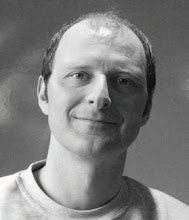DLR Poetry Now : Robert Pinsky, "Born for Death"
The keynote address at Poetry Now was delivered impeccably by Robert Pinsky. The former US poet laureate chose as his starting point Keats' Ode To A Nightingale - or, more specifically, the line;
"Thou wast not born for death, immortal Bird!"
It was the phrase "born for death" said the poet, that struck him with a surprising sense of exhilaration at a certain stage of life.
He then recounted a conversation with a South African friend, while en route to visiting with a local Sangoma, or spirit diviner. He was told "We Zulus don't worship our ancestors - we consult them". This statement also caused a certain elation - becoming a key consideration while writing his latest collection 'Gulf Music'.
For Pinsky, the resonating and consistent factor in these two references is the placing and perception of a duality - conscious or otherwise - in how we deal with life, death, memory and ancestry in defining ourselves in our own terms; the current, the modern. This is where he sees Modernist writing, from the early 20th century onwards, getting to grips with the human condition. He has written elsewhere that;
“Deciding to remember, and what to remember, is how we decide who we are.”
This theme was a touchstone throughout his address, along with the observation that neither remembering nor forgetting can ever be a complete act. He noted that the name of the river Lethe, which flows through Hades in Greek mythology, means forgetfulness - and how, via Latin, the word 'Lethal' shares the same root.
He spoke about the particularity of Joyce choosing Ulysses as the classical matter for his dealings with the modern - a choice that allowed the writer full reign in embracing those contrary aspects of the modern condition within the framework of myth.
The address culminated in reading the first poem from Gulf Music. “Poem of Disconnected Parts” draws together, in closed couplets, many of the concerns discussed in his address. You can read it here.
Finally, Pinsky provided a Coda of sorts, reading several lines from his own translation of Dante's Paradise.
It all went a little deep for this non-academic at times - yet it was a thoroughly engaging talk. Pinsky's smooth, warm voice had a tactile quality which called to mind expertly crafted woodwork - smooth, warm and running with the grain. Speaking with the aid of notes, occasionally using repetition to stress key points, the flow and control of ideas was remarkable.
The over-arching expression seemed to be a recognition of the freeing potential in embracing the fact that we are all 'born for death'. That in 'tramping down' our ghosts, we allow our ancestors to find their place among our words - not haunt us as ghosts - to our own better, vital understanding of our (inevitably) modern condition.

